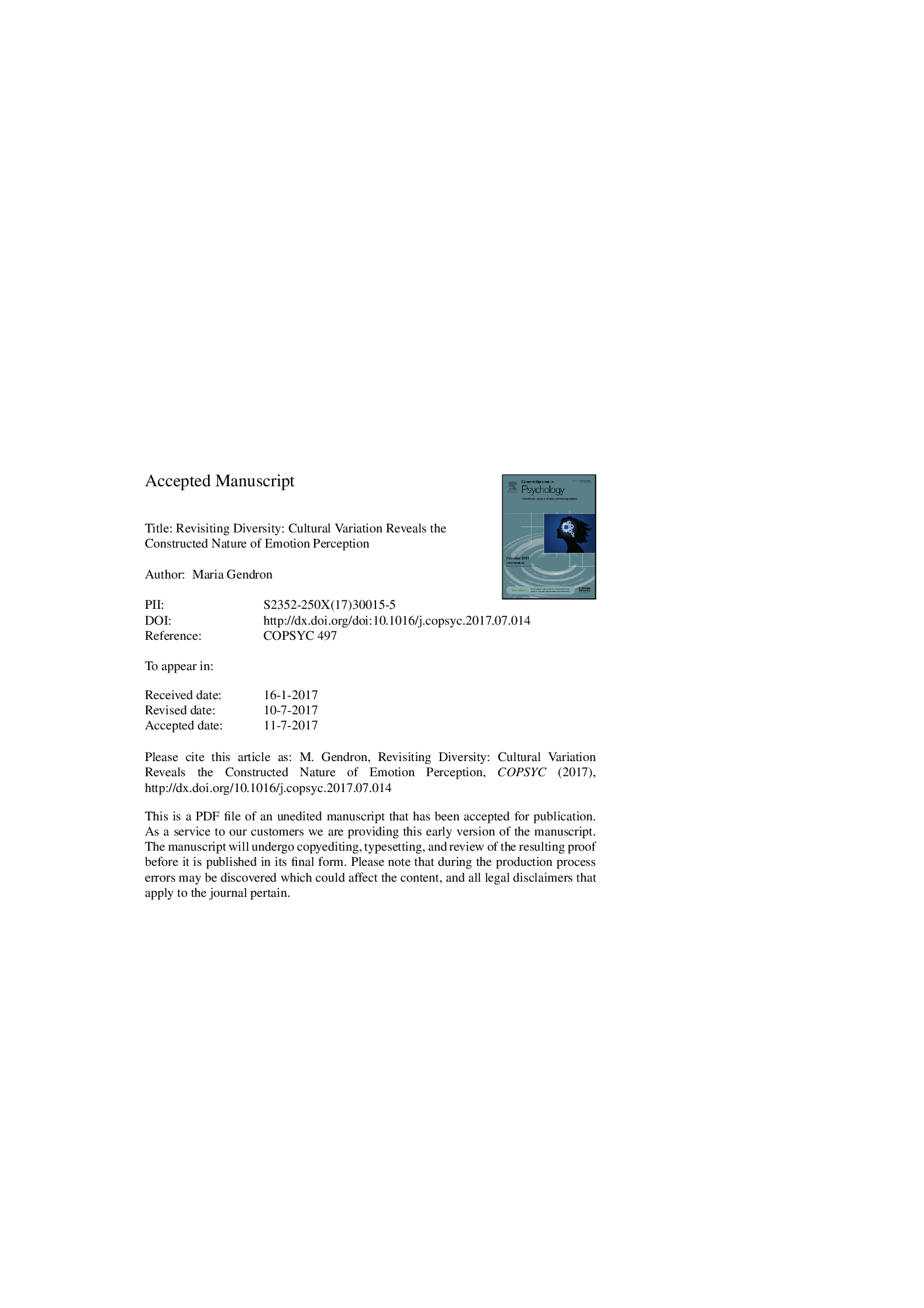| Article ID | Journal | Published Year | Pages | File Type |
|---|---|---|---|---|
| 5033425 | Current Opinion in Psychology | 2017 | 21 Pages |
Abstract
The extent of cultural variation in emotion perception has long been assumed to be bounded by underlying universality. A growing body of research reveals, however, that evidence of universality in emotion perception is method-bound. Without the assumption of underlying universality, new lines of inquiry become relevant. Accumulating evidence suggests that cultures vary in what cues are relevant to perceptions of emotion. Further, cultural groups vary in their spontaneous inferences; mental state inference does not appear to be the only, or even most routine, mode of perception across cultures. Finally, setting universality assumptions aside requires innovation in the theory and measurement of culture. Recent studies reveal the promise of refinements in psychological approaches to culture. Together, the available evidence is consistent with a view of emotion perceptions as actively constructed by perceivers to fit the social and physical constraints of their cultural worlds.
Related Topics
Social Sciences and Humanities
Psychology
Applied Psychology
Authors
Maria Gendron,
